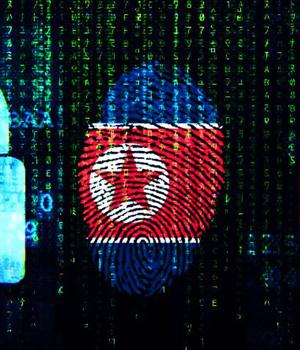Security News > 2022 > July > Microsoft links Holy Ghost ransomware operation to North Korean hackers

For more than a year, North Korean hackers have been running a ransomware operation called HolyGhost, attacking small businesses in various countries.
Researchers at Microsoft Threat Intelligence Center are tracking the Holy Ghost ransomware gang as DEV-0530.
Classified as SiennaPurple, the early Holy Ghost ransomware variant did not come with many features compared to the subsequent Go-based versions that emerged in October 2021.
Holy Ghost actors followed the pattern of a typical ransomware attack and stole data before deploying the encryption routine on infected systems.
This detail, the infrequent rate of attacks, and the random selection of victims add to the theory that the Holy Ghost ransomware operation may not be controlled by the North Korean government.
The connection with state-backed hacker groups is present as MSTIC found communication between email accounts belonging to Holy Ghost and the Andariel, a threat actor part of the Lazarus Group under North Korea's Reconnaissance General Bureau.
News URL
Related news
- Microsoft: North Korean hackers join Qilin ransomware gang (source)
- Hackers Exploit Paragon Partition Manager Driver Vulnerability in Ransomware Attacks (source)
- Microsoft Teams tactics, malware connect Black Basta, Cactus ransomware (source)
- Safe{Wallet} Confirms North Korean TraderTraitor Hackers Stole $1.5 Billion in Bybit Heist (source)
- North Korean Lazarus hackers infect hundreds via npm packages (source)
- Live Ransomware Demo: See How Hackers Breach Networks and Demand a Ransom (source)
- TechRepublic EXCLUSIVE: New Ransomware Attacks are Getting More Personal as Hackers ‘Apply Psychological Pressure” (source)
- North Korean hackers adopt ClickFix attacks to target crypto firms (source)
- North Korean Hackers Disguised as IT Workers Targeting UK, European Companies, Google Finds (source)
- North Korean Hackers Deploy BeaverTail Malware via 11 Malicious npm Packages (source)